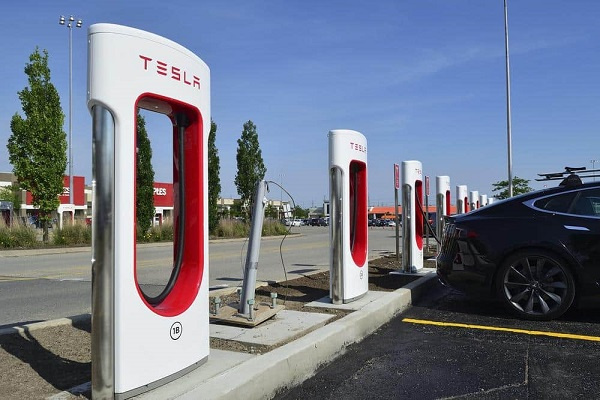Wireless EV Charging
The Future Of Wireless EV Charging Roads Is Here The Road
Ahead Wireless EV charging roads may appear to be a concept of the distant
future, but the reality is that we are already riding not-so-far-away from this
futuristic vision. Now, imagine your vehicle magically charging while you
simply take a drive. The worrying factor of charge station-relevant wait times
becomes nil to none. Military use cases aside, the concept is becoming all the
more real, and it has profound implications for the world of ecotourism
How do
Wireless EV Charging Roads Function?
EVs’ wireless charging functions a lot like our everyday
smartphone charging, just a bit more intricate. Rather than being plugged in,
these cars use power lines located in the streets that charge cars when they
pass over them.
Here is
how it functions:
- Charging
Coils Beneath the Road - Electromagnetic inductive coils, also
referred to as specialized coils, are built under the pavement above the
road's surface. When these coils receive electricity, they produce an
electromagnetic field.
- Electromagnetic
Receivers in EVs– Vehicles that have wireless DIY charging
receivers installed are able to harness this energy and turn it into
electric energy.
- Charging
While Driving - While the car is within a certain lane, it has to be
in motion to continually receive electric energy while being charged, as
it does aid in minimizing the number of times traditional charging is
required.
To put it simply, these roads work like portable charging
stations, allowing EVs to receive energy on the go.
What makes EV charging roads so unique is that they can help
tackle the current challenges of EV users and owners, especially during
challenging times.
Bid
Farewell To Charging Holdups
One of the most prominent disadvantages of EVs is the
charging duration. Even with quick chargers, recharging still adds additional
time to a journey. This issue ceases to exist with wireless roads, which keep
vehicles powered while in operation.
Batteries
That Are Smaller and Cheaper To Produce
EVs require expensive and heavy batteries in order to travel
long distances. If the roads provided power continuously, cars would not need
massive batteries. This could facilitate the development of lighter and cheaper
EVs.
Charging
Stations Would Experience Less Congestion
Charging stations are becoming overcrowded with the frequent
use of EVs, but with charging roads, that demand may drop significantly. With
less wait time and smoother travel, many users can be accommodated.
Fulfilling
A Sustainable Future Vision
Solar or wind-powered roads would make transportation
greener. Also, if large electric batteries are not required, the production of
batteries would have a lower environmental impact.
Where Is
The Testing Of Wireless Charging Roads Taking Place?
This technology is currently being experimented with by
several companies and countries.
- Sweden
- Established a test road designed to charge electric vehicles while
driving.
- The
United States - Michigan and Indiana are developing roads capable of
charging EVs wirelessly.
- Germany
- Installing roads capable of charging electric buses and trucks.
- South
Korea - Implemented a wireless charging road for electric buses in
Gumi.
These countries demonstrate that wireless charging roads are
more than a concept; they are already in development and could soon be part of
everyday life.
Challenges
and What's Next
Despite that, the technology is intriguing, and there are a
couple of things that must be addressed before it can go mainstream.
Large
Installation Cost
It will be expensive to install roads with wireless charging
technology. Governments and business organizations will have to fund such
projects on a large scale.
Vehicle
Compatibility
Not all electric cars are wireless-charging-capable as yet.
The companies would have to make the technology standard so that any electric
car could ride on such roads.
Energy
Efficiency
Wireless charging does involve energy loss, and thus it is
less efficient than plug charging. Engineers are trying to figure out how to
make it more efficient and minimize power wastage.
While these are indeed issues, constant innovation in
technology and infrastructure could bring about wireless charging roads within
a decade.
The
Future of EV Travel
Wireless EV roads would change the way we get around, making
electric vehicles more convenient, efficient, and accessible. Imagine a future
where you never have to worry about your car's battery level—because the road
is recharging it.
As testing and research continue, it's becoming more and
more evident that this technology can make electric cars even more convenient
for daily use. If implemented on a mass scale, it could mark the start of a new
age of transportation—one where electric cars can be charged as quickly as an
iPhone and road trips are smoother than ever.









